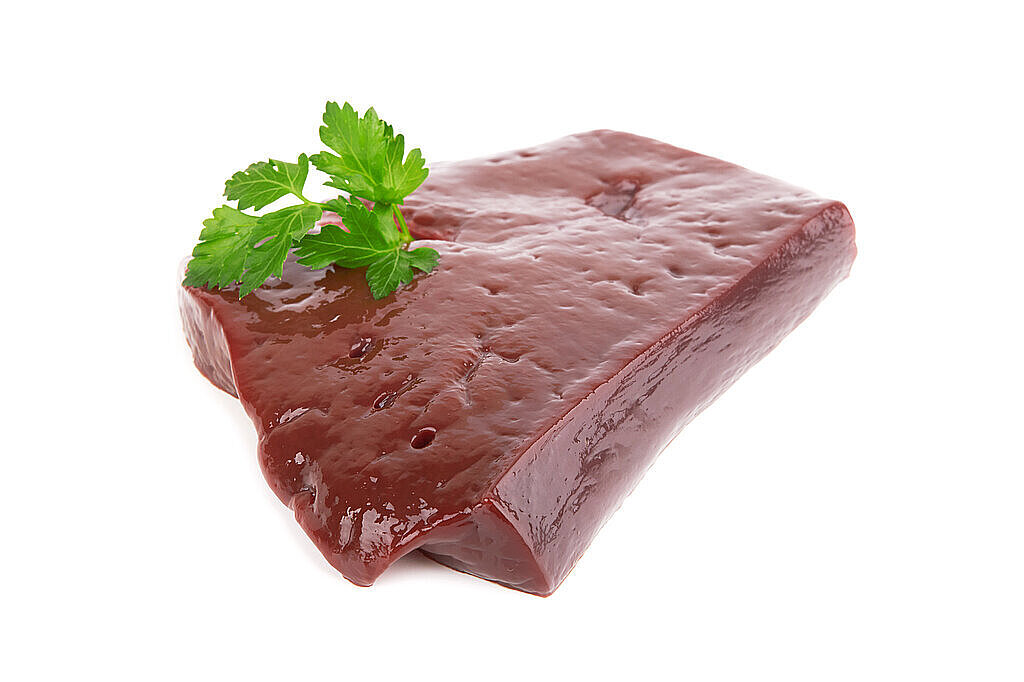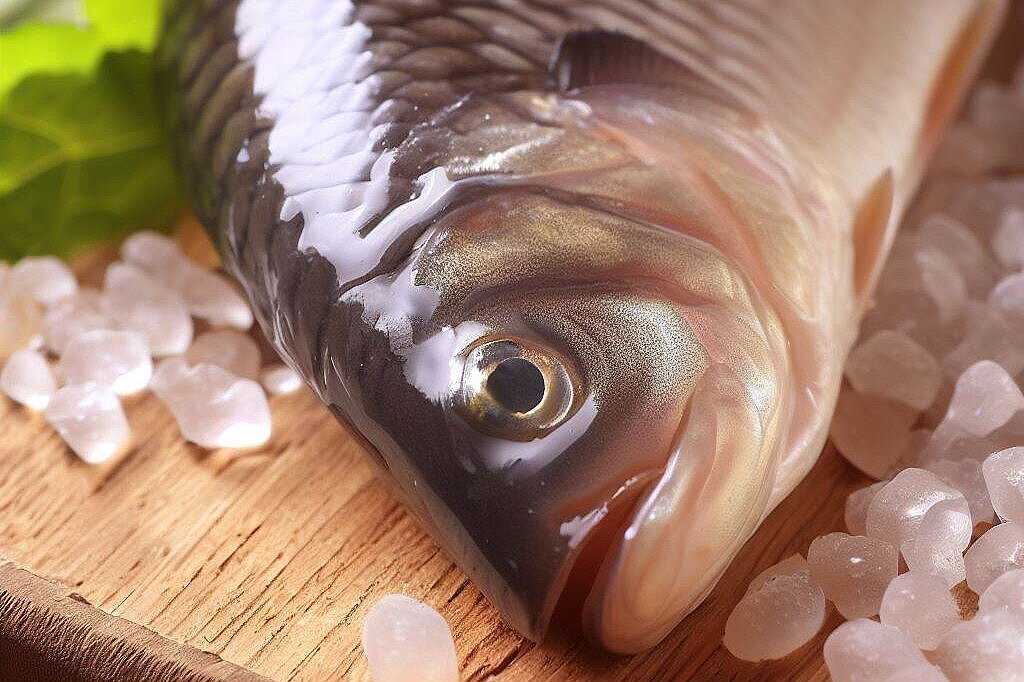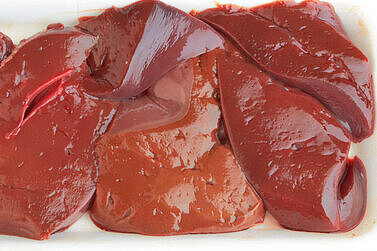Chicken liver hydrolyzate

What is chicken liver hydrolyzate?
Chicken liver hydrolyzate is a product obtained from the livers of chickens. The liver is treated with acids or enzymes to break down the proteins into smaller fragments (peptides) and individual building blocks (amino acids). This process is called hydrolysis and is also used in the production of spices or soy sauce.
Chicken liver hydrolysate therefore contains many amino acids that are important for the structure and function of cells, tissues and organs. It also has an intense flavor that can make the food more appealing to your dog.
How is chicken liver hydrolyzate used?
Chicken liver hydrolysate is mainly used as an additive in dog food or supplements. It can serve various purposes, such as
- Improving the flavor and aroma of the food
- Increasing the protein content of the food
- Supporting digestion and intestinal health
- Promoting rehydration (water intake) in the event of diarrhea or vomiting
- Providing essential amino acids that the dog cannot produce itself
- Strengthening the immune system and promoting wound healing
What are the benefits of chicken liver hydrolyzate?
Chicken liver hydrolysate can have various benefits for your dog depending on the dosage and combination. Some possible benefits are
- It can help your dog eat more if he has a loss of appetite or is picky.
- It may help your dog drink more water if he is dehydrated or losing fluids.
- It can help your dog maintain a balanced diet if he is not getting enough of certain amino acids.
- It can help your dog regulate his digestion if he is suffering from diarrhea or constipation.
- It can boost your dog's immune system when they are sick or recovering from an injury.
What are the disadvantages of chicken liver hydrolyzate?
Chicken liver hydrolysate is not suitable for all dogs and can also have some disadvantages depending on the dosage and combination. Some possible disadvantages are
- It may harm your dog if he has an allergy or intolerance to chicken liver or any other ingredient in the hydrolysate.
- It can harm your dog if he gets too much of it and thus has an oversupply of protein or certain amino acids.
- It can harm your dog if he gets too little of it and thus has a deficiency of protein or certain amino acids.
- It can harm your dog if it interacts with other additives or medications, causing unwanted side effects.
If you notice any signs of hypersensitivity or poisoning in your dog, you should see your vet immediately. We are not a substitute for a vet, but we try to be as accurate as possible. Every dog reacts differently and we recommend you get a second opinion or consult your vet if in doubt.
Stay healthy and take good care of your four-legged friend!😊
Similar to Chicken liver hydrolyzate
Poultry liver hydrolyzate is a product obtained from the liver of poultry such as chickens or turkeys. The liver is broken down into smaller, more easily digestible components with the help of...
Liver hydrolyzate is a product obtained from the liver of animals such as cattle or pigs. The liver is broken down with enzymes or acids to release the proteins and other nutrients. The result is a...
Fish hydrolyzate is a product obtained from fish or fish by-products. The fish proteins are broken down by enzymes or acids into smaller building blocks known as peptides. These peptides are easier...
Meat hydrolyzate is a product obtained by hydrolyzing meat. This means that the meat is treated with water and enzymes to break it down into smaller components. These components are mainly amino...



